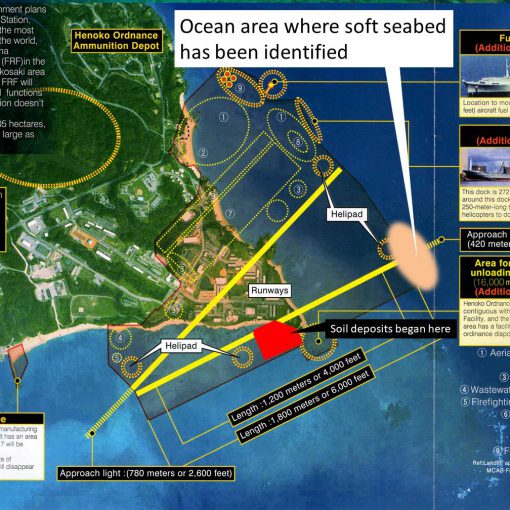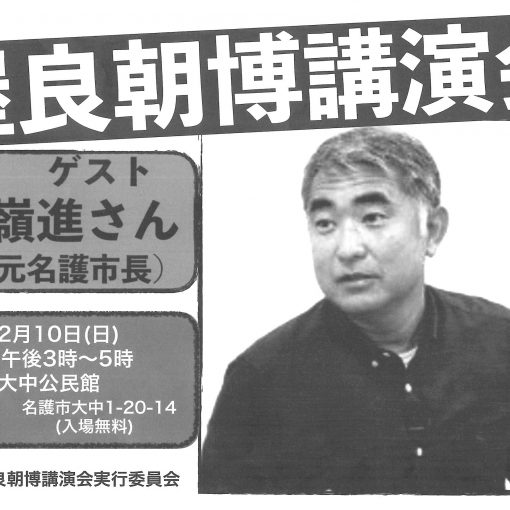
Takamatsu Gushiken (center) speaking online with members of the foreign press stationed in Japan – March 4, at the Okinawa Prefectural Office in Naha
March 5, 2021 Ryukyu Shimpo
Takamatsu Gushiken, 67, who represents the Battle of Okinawa victim remains recovery volunteer group Gamafuya, is continuing a hunger strike demanding a stop to a plan to use earth from the southern region of Okinawa, where the remains of the victims of war rest, for new base construction in Henoko. On March 4, he gave an online press conference to foreign journalists stationed in Japan. Gushiken claimed that the ground also contains the remains of U.S. soldiers who went missing during the Battle of Okinawa, stating, “Simply, this is not a problem only for Japan, the U.S. has a concerned interest as well.” The hunger strike is in its fourth day, and survivors of the Battle of Okinawa have also made appearances in front of the Okinawa Prefectural Office. Gushiken stressed regarding the plan for the dirt from southern Okinawa, “It is definitely not something that can be allowed.”
At the press conference with the foreign press, there were questions such as, “If the plan in southern Okinawa is stopped, do you think it will also stop the construction plan for Henoko?” “Are you afraid of China’s military expansion?” Gushiken strongly responded, “Before the question of whether or not I approve of the base or not, there is a humanitarian issue to consider. The remains of the war-dead will be desecrated, and this is a strike to stop that.”
Additionally, Gushiken indicated that according to U.S. army data 239 soldiers went missing in the Battle of Okinawa, as well as victims from the Korean peninsula. He explained that even now remains are being found in the area around the excavation site.
On March 4, at the tent in front of the prefectural office where Gushiken continues his hunger strike, Ako Onaga, 91, from Nago, who served in the military as a nurse in the battle of Okinawa, and Itoman-native Michiko Uehara, 85, who has been searching for the remains of her missing father, both visited to show their support. Onaga spoke into a microphone about the remains that have been resting unperturbed for the past 75 years since the south of Okinawa became a battlefield, saying, “I do not want the place where blood, flesh, and bone returned to the earth to be buried at Henoko.”
Gushiken plans to continue his hunger strike through March 6. He said of his condition March 4, “My head is moving a bit slower, and I am worried that there will be lingering effects. My sense of equilibrium, but the health check came back relatively normal.”
(English translation by T&CT and Sam Grieb)



